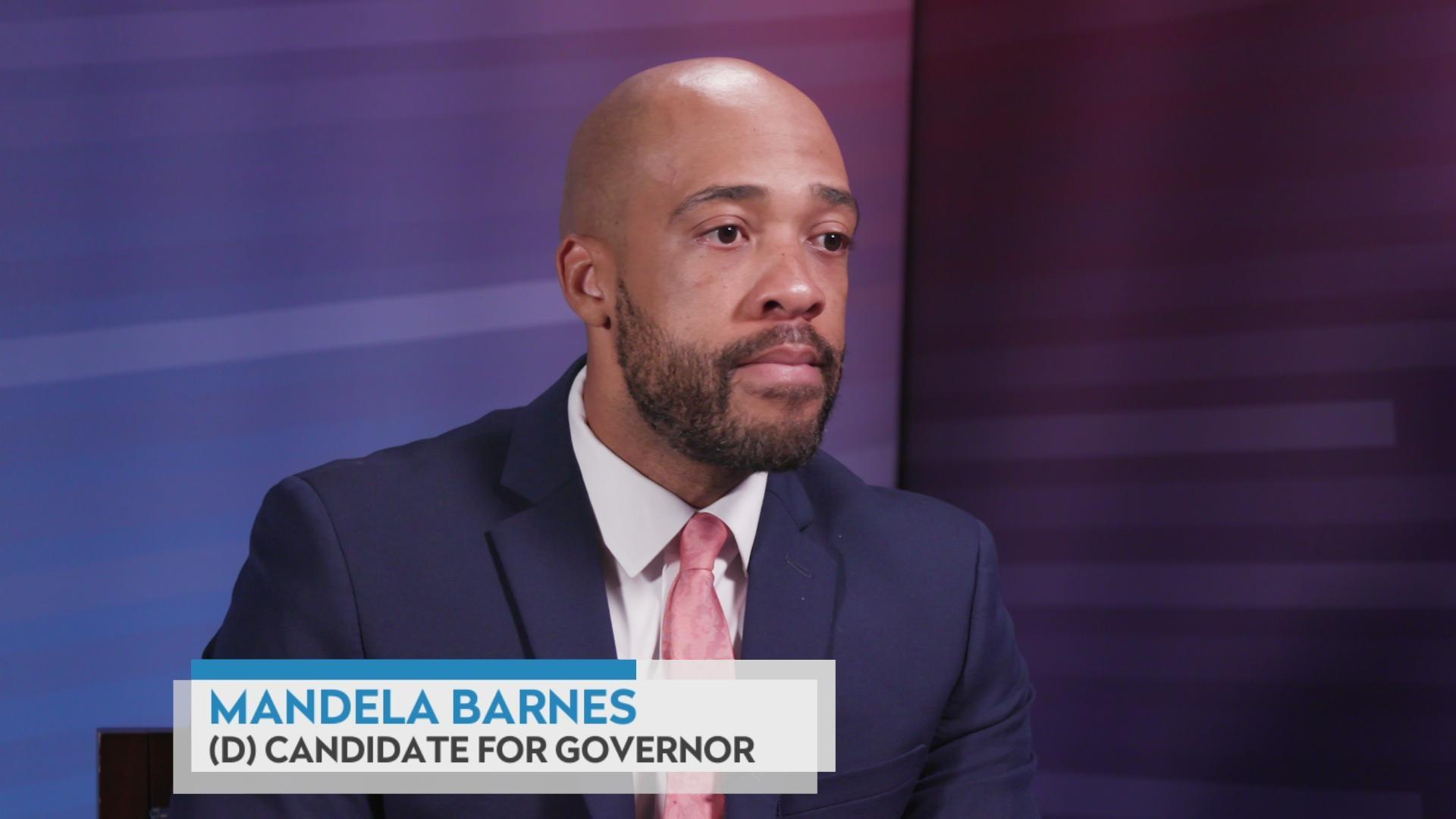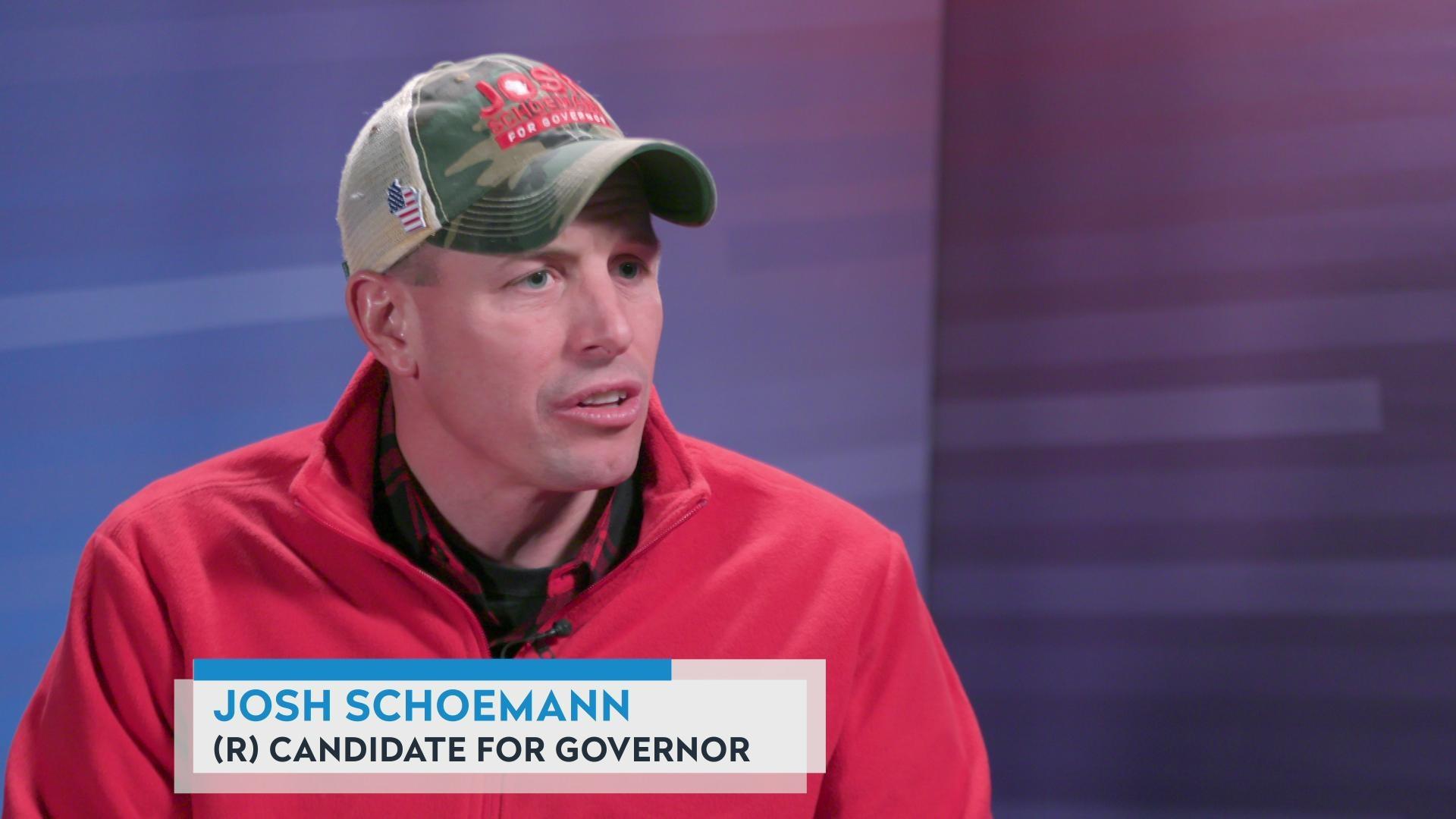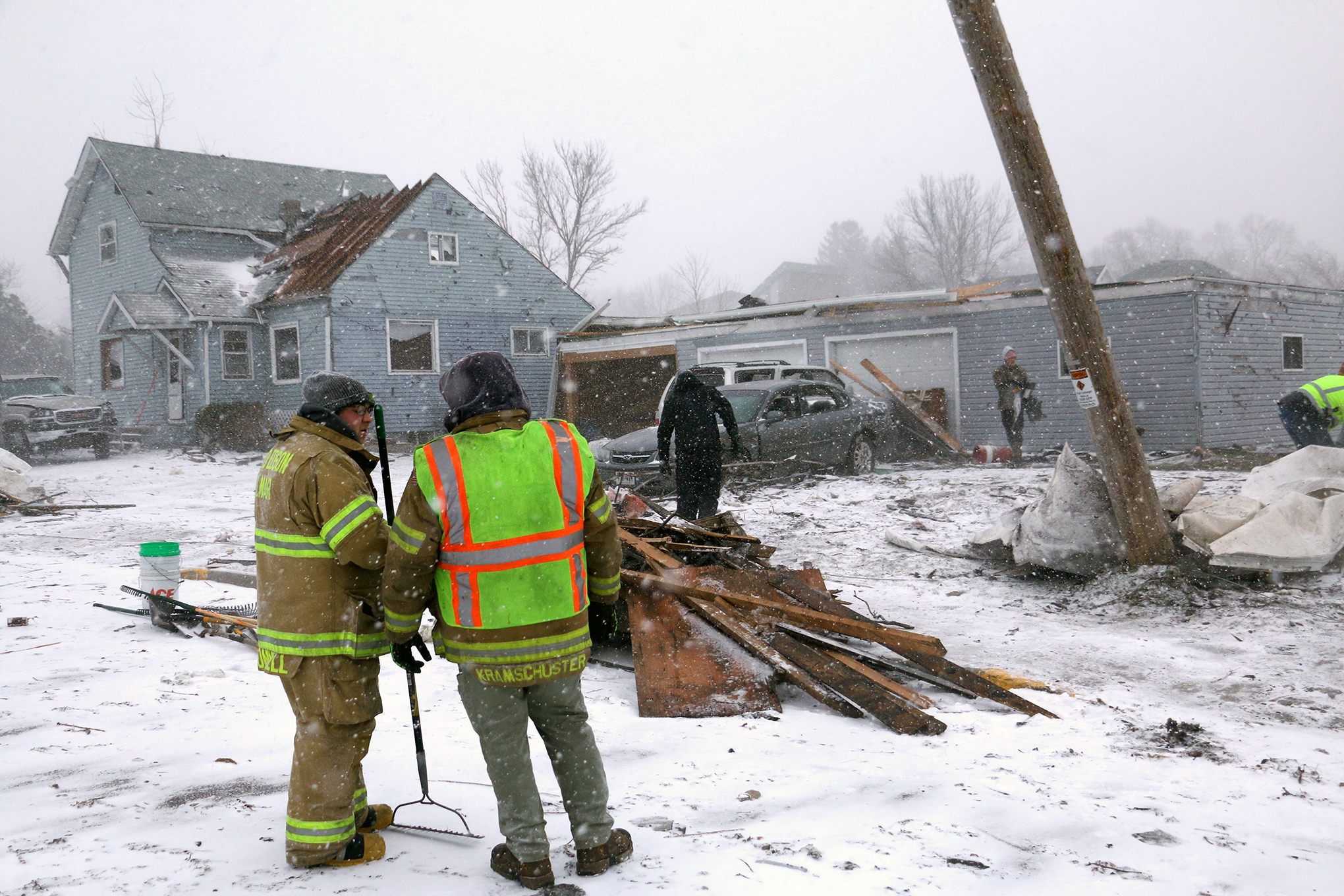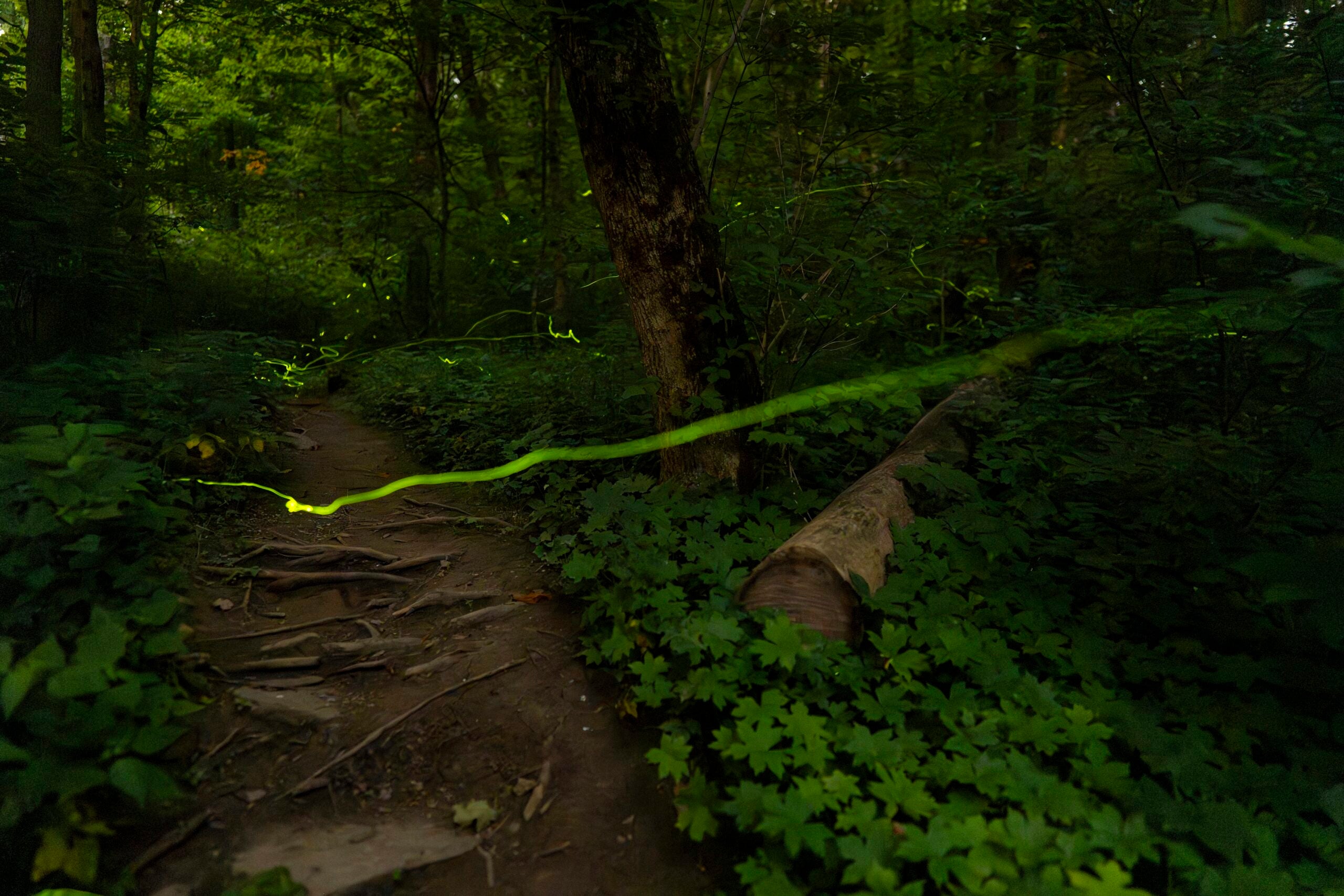Diane Flath grew up in Wisconsin hearing and saying the word “ope.”
It was about a year ago when someone sent her a Charlie Berens video embracing the word and its role in the Midwest.
“At first I thought it was just a funny little comedic act. But then I realized that I actually do say ‘ope’ during the times that he was portraying in this little video,” Flath said. “It was never really something that we thought about. It’s just, ‘Ope, let me sneak past you,’ or, ‘Ope, while you’re up, can you grab me something?’”
News with a little more humanity
WPR’s “Wisconsin Today” newsletter keeps you connected to the state you love without feeling overwhelmed. No paywall. No agenda. No corporate filter.
Flath had questions about this word, so she reached out to Wisconsin Public Radio’s WHYsconsin: “I want to know where it came from. Why do we say it all the time? And why did it all of a sudden become more popular, more well known, recently? Why is it here?”
Flath, a teacher from Hartford, even did an experiment to see if people found the word out of the ordinary.
“If you throw it into conversation, no one bats an eye,” she said. “I’ve tried to do it intentionally a couple of times just to see if I would get a chuckle or a look or anything, but there’s nothing. Everyone just accepts it as part of our language.”
So where did the word come from?
Flath has one idea.
“I kind of wondered if it was related to German because I know a lot of people of German heritage settled in this area,” she said. “And to me ‘ope’ sounds similar to the word ‘opa,’ which is grandpa in German, so I didn’t know if that was related like, ‘Ope, opa’s coming through,’ or something like that.”
Speak midwestern
No Yeah = Yes
Yeah no = No
Yeah no for sure = Definitely
Yeah no yeah = I’m sorry unfortunately, the answer is yes
No yeah no = oh yeah nothing to worry about
Welp: exclamation before it’s time to go or “I guess that’s how it goes”
Ope: shorthand apology
— Midwest vs. Everybody (@midwestern_ope) July 12, 2022
To get to the bottom of this question, we reached out to one of public radio’s favorite linguistic experts: Grant Barrett, co-host of the show “A Way With Words.”
Barrett had some shocking news to share with us: The word “ope” is not — I repeat, not — Midwestern in origin. It’s not even exclusive to this part of the country. There are self-reports of the word being used across the United States, Canada and the United Kingdom, he said. There is even a video called, “The noise that all Brits make in awkward situations” from 2015 showing the popularity of the word in the U.K.
“I’m sorry to take away this Midwestern thing. But you can still have the ranch dressing — we will still give you that,” Barrett said.
So let’s get down to business and answer Flath’s questions.
This transcript has been edited for brevity and clarity.
Where does ‘ope’ come from?
Grant Barrett: It’s a physical function of the body and not a linguistic function. So what’s happening is it’s a little noise that you make when you suddenly stop expelling air. So it’s a gentle stop.
For example, you might be moving or are making some kind of gesture with your hands or talking. And then you’re interrupted — either physically interrupted or interrupted by somebody else speaking or interrupted because you notice that whatever you’re doing needs to stop — and you bring your exhalation of air to a sudden end. It brings your lips together, which creates what linguists call an excrescent “p.” It’s not quite the same “p” as say in “pie” or “people” or “puppy,” but it’s very close to that.
(Excrescent in linguistics means a sound that occurs in a word without having any etymological basis, Barrett explains.)
Listen to Grant Barrett pronounce “ope” in different ways and explain how where the air is cut off shapes the sound of the word.
We can’t trace that “p” to a French root or a Latin root or Greek root, it’s just something created by the physical production of our mouths. And so that abatement, that excrescent “p” is a bilabial stop, that means both of your two lips are involved to stop the flow of the air. And so in the same way that the action we’re doing is cut off, the air is cut off too, and it sounds a little like “oop” or “ope” or “up.”
It has a little bit to do with the word “oops.” “Oops” is the formalized, written version — the word version — of that sound. So “oops,” isn’t the sound itself, it’s more of our name for the sound. All written language describes spoken language. Spoken language is the real language, anything that comes to your mouth is first. And the written language is second. So “oops” is kind of like the written form of this utterance that we make. It doesn’t come from “oops,” “oops” comes from (ope).
Listen to Grant Barrett share examples of how “well” becomes “whelp,” “no” becomes “nope” and “yeah” becomes “yep.”
Why are we using ‘ope’ now and what about all those memes?
GB: There’s something that linguists call the recency illusion, which is once we notice something, we notice it more.
The recency illusion is often more about us … and our noticing abilities, our pattern matching abilities, than it is about what’s really happening in the world.
Sometimes the thing is more common. Now, “ope,” however, has been being commented on for at least 10 years and maybe more. And so the “ope” thing has been happening for a lot longer than that. And the other reason you’re noticing it more is the internet meme machines are, by their very nature, very tiny bits of information. They are easy to pass along, and they tend to be fun. And so that little bit of information about “ope” became traditionally considered, at least in the Midwest, as Midwestern because people like to think of themselves as characterizable — “Oh, this is who we are. I noticed this. My people do this. I do this. So this is who we are.”
We just kind of think, “Oh, yeah, this is a Midwest thing.” But it isn’t, like I said earlier, it’s not. It’s an everyone-does-this-in-the-English-speaking-world, as far as we know, and probably other languages, too. It’s just really very difficult to study these non-linguistic utterances … But this is the best that we know.
Is ‘ope’ more commonly used in one region over the other?
GB: It could be more common in the West. But like I said, it’s very difficult to study this. And just because people talk about it more in a place doesn’t mean it’s more used in a place. Often our own understanding of how we speak is skewed because just like the recency illusion, we notice things once we notice things. And so we’re not very good judges of how we speak.
But, we can just say, “This is a thing that we do, and we’re known for it,” without saying, “It’s only us.”
Our question-asker said she noticed adults say it more than younger people. Thoughts?
GB: We call that age grading.
There may be a demographic to this where you can say older generations do it and younger generations don’t, but we don’t know because the linguistic fieldwork hasn’t been done. But people can do their own fieldwork by looking at their lives, and literally keep their own notes.
I’m going to throw one more linguistic thing at you and this is called markedness. That just means the tendency for a group of people to note that something is typical of them or people like them. So that’s what’s happening with “ope” here in Wisconsin and places like Wisconsin. People are noting it already, that it’s typical of them. So it kind of becomes its own snowball effect. Markedness is really what’s happening: people note a thing, and then they continue to note the thing and noting it makes it more notable to others.
What was Flath’s reaction to this information?
After I spoke with Barrett, I reached out to Flath to share what I learned.
And what did she think about all this?
She was speechless at first.
“Sorry I don’t have a good sound clip here for you because I’m just, like, ‘Wow,’” Flath said.
She was disappointed “ope” wasn’t unique to Wisconsinites or Midwesterners.
“I was really hoping it was like an ‘us’ thing,” Flath said. “But that’s OK. It’s still kind of interesting that it’s everywhere … and unexpected that it’s a movement thing and not a linguistic thing. I wasn’t expecting that.”
For more fun, test your knowledge of the meaning and origin of “ope” in this quiz.
This story was inspired by a question shared with WHYsconsin. Submit your question below or at wpr.org/WHYsconsin and we might answer it.







